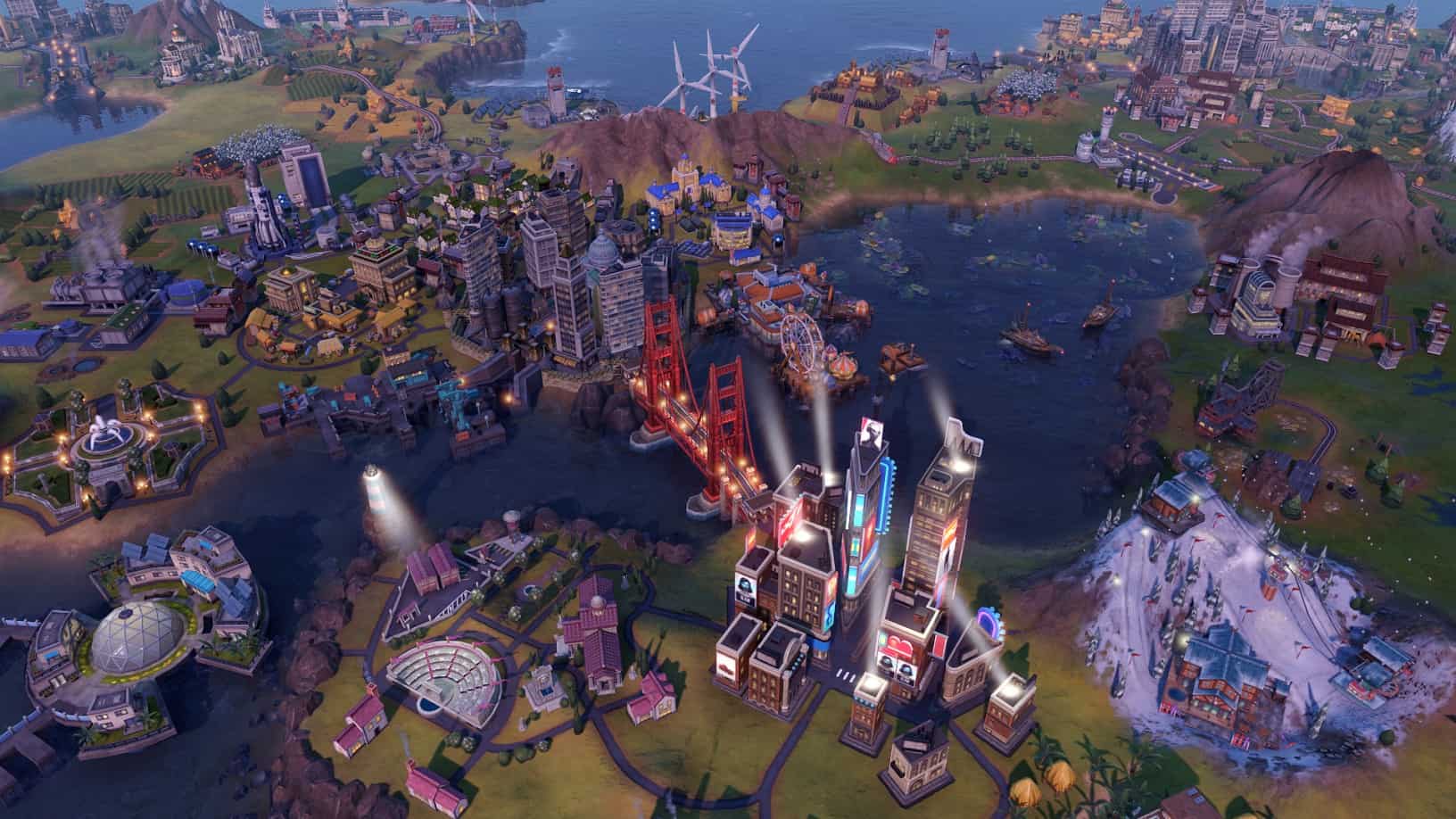The second big expansion has arrived for Civilization VI and with it comes a bunch of new civs, the world congress, natural disasters and much more. Gathering Storm is the name of the expansion and it makes some big changes to the standard Civilization formula.
After spending a good amount of time playing Civilization VI: Gathering Storm, I can safely say that it is a welcome addition. Historically the Civilization series has always handled expansions exceptionally well, making sweeping changes that alter the game for the better. Things tend to change so much that it becomes difficult to return to a vanilla Civilization game after experiencing the expansions. This also means that a prior Civ game can be better than its sequel, simply because the expansions it has received made such an impact. Now that Civ 6 is two expansions deep, I can’t ever see myself returning to a previous game. Things just feel so complete.
The World Congress and a new Diplomatic Victory condition are a welcome addition to Civilization VI. Diplomacy has always been a personal favourite of mine and something the Civilization series hasn’t always handled perfectly. To see an entire victory condition implemented here shows there is a bit of a dedication to diplomacy this time around, and I wholeheartedly welcome it. Diplomatic Favour is a new currency within the game that can be earned through trade, city states, governments, and alliances. It represents how much political sway you have within the landscape of the game and you can spend it by voting within the World Congress.
World Congress votes can leave big dents on a global scale. It’s a great tactical tool, especially in multiplayer games, where alliances can come together to make mutually beneficial decisions. Players can target another player to hinder their progress or make decisions to help out themselves or their allies. Every player gets to vote, some players wielding more political swing than others, but the end result won’t be known until all of the votes are locked in. Diplomacy is a great and fascinating tool that brings political wheeling and dealing to a level Civilization VI hasn’t yet managed to reach. Unfortunately it’s a tool that is much more intriguing and conniving in a multiplayer match because the AI can certainly become one-dimensional and predictable.

The other big addition arriving with Gathering Storm is the implementation of natural disasters and Global Warming. Where you settle your cities is more important than ever before because the world around you can shift in undesirable ways. Volcanoes can erupt, rivers can flood, and hurricanes can tear through your land. Destruction can lead to fortune however as the aftermath of a natural disaster can sometimes leave the land more fertile than it was before.
You’re definitely at the mercy of Mother Nature in Gathering Storm, but as the game progresses, you eventually get the upper hand and Mother Nature is now at your mercy. You can fortify against natural disasters and your carbon emissions begin to destroy the world. Rising sea tides is inevitable, reshaping the land around you.
Global Warming is an interesting mechanic within the game. The destruction of man has always been on show in Civilization but that destruction was always between different empires. Gathering Storm shows how that destruction can evolve beyond war and it’s somewhat refreshing to see it on show. It’s a bit depressing to see that Global Warming is an inevitability within the game, and not really something you’re trying to fight against. If you were to take Civilization VI as a historical document it would appear as though the world is destined to die at mankind’s hands and the only survivable future is one that takes place beyond the stars. It’s miserable to think about, although it’s certainly something that could be a good reflection on the real world.
The new mechanics at play here expand the dynamics of the game further and force you to consider things on a larger, more global scale. Diplomacy is almost the opposite of war as you try to form alliances with other civs and city states, and natural disasters are a constant threat forcing you to adapt and overcome.
These new elements aren’t surface level additions, they are built into the core of the game and feel cohesive and interconnected with already existing elements. New civs have been introduced to help support the new mechanics and old civs have been updated to help them compete in a newly expanded universe.
“…with the addition of these crazy new civilisations and many more, Gathering Storm once again feels novel, fresh, and challenging.”
Speaking of new civilisations, there’s a lot here to unravel. A whole bunch of new leaders and civs have been added, some of which change up the playstyle fairly drastically. Eleanor of Aquitaine kicks into the loyalty element of the game and she creates a first for the series, being capable of ruling both France and England. The Canadian civilisation has a stronger focus on diplomacy and isn’t able to engage in surprise wars. The Maori empire is also quite unique, starting the game on ocean tiles and needing to find land before they can settle their first city.
It’s actually delightful to see the series continue to bring new elements to the table. This new expansion doesn’t feel safe, it feels new and fun. And with the addition of these crazy new civilisations and many more, Gathering Storm once again feels novel, fresh, and challenging.
All in all, Gathering Storm is a great addition to the Civilization VI formula. There are so many updates that help the game thrive and give more options for players of the game. There is a concern that new players will be overwhelmed by the amount of content provided in the game. There is certainly a lot of micro and macro management that could prove to be too much for those jumping into the game for the first time. Although for players who have been along for this journey ever since the game’s initial release, Gathering Storm feels like a natural and enjoyable new era for the game.









